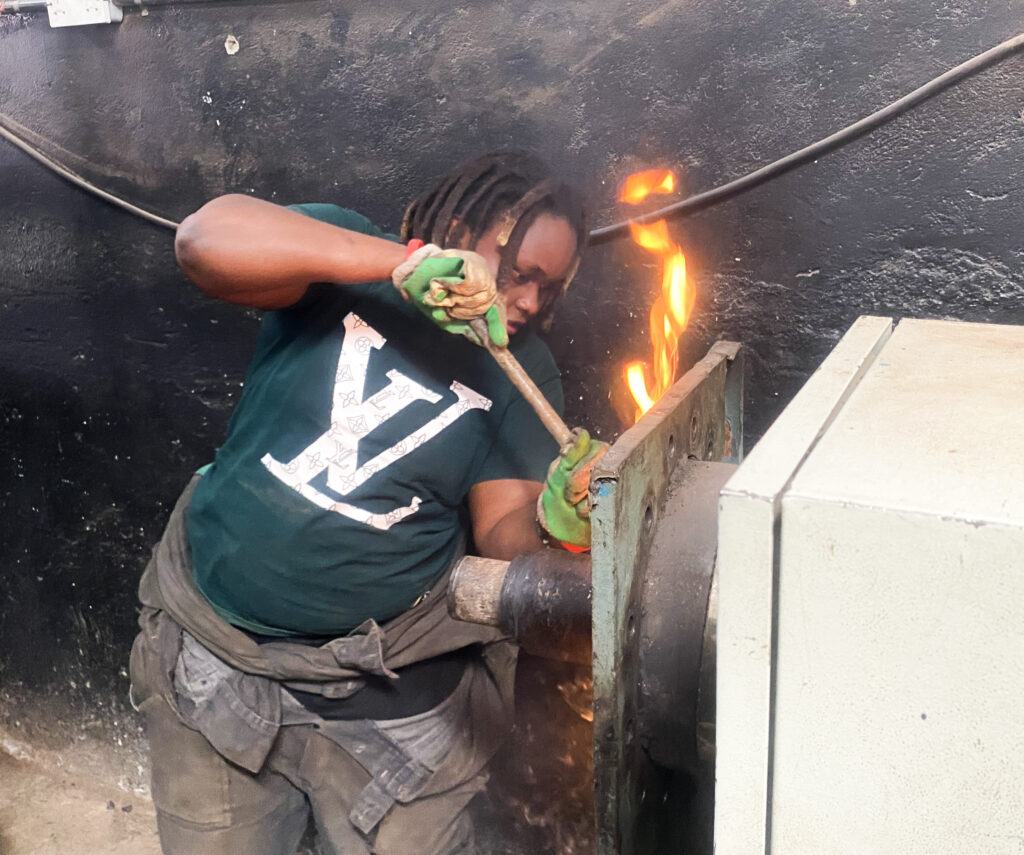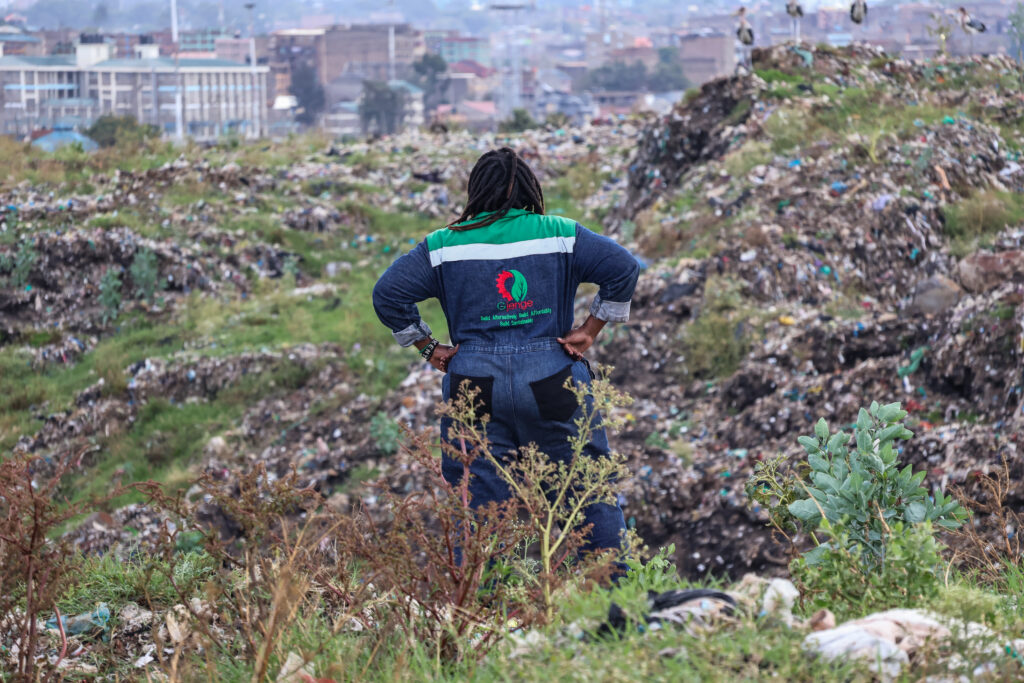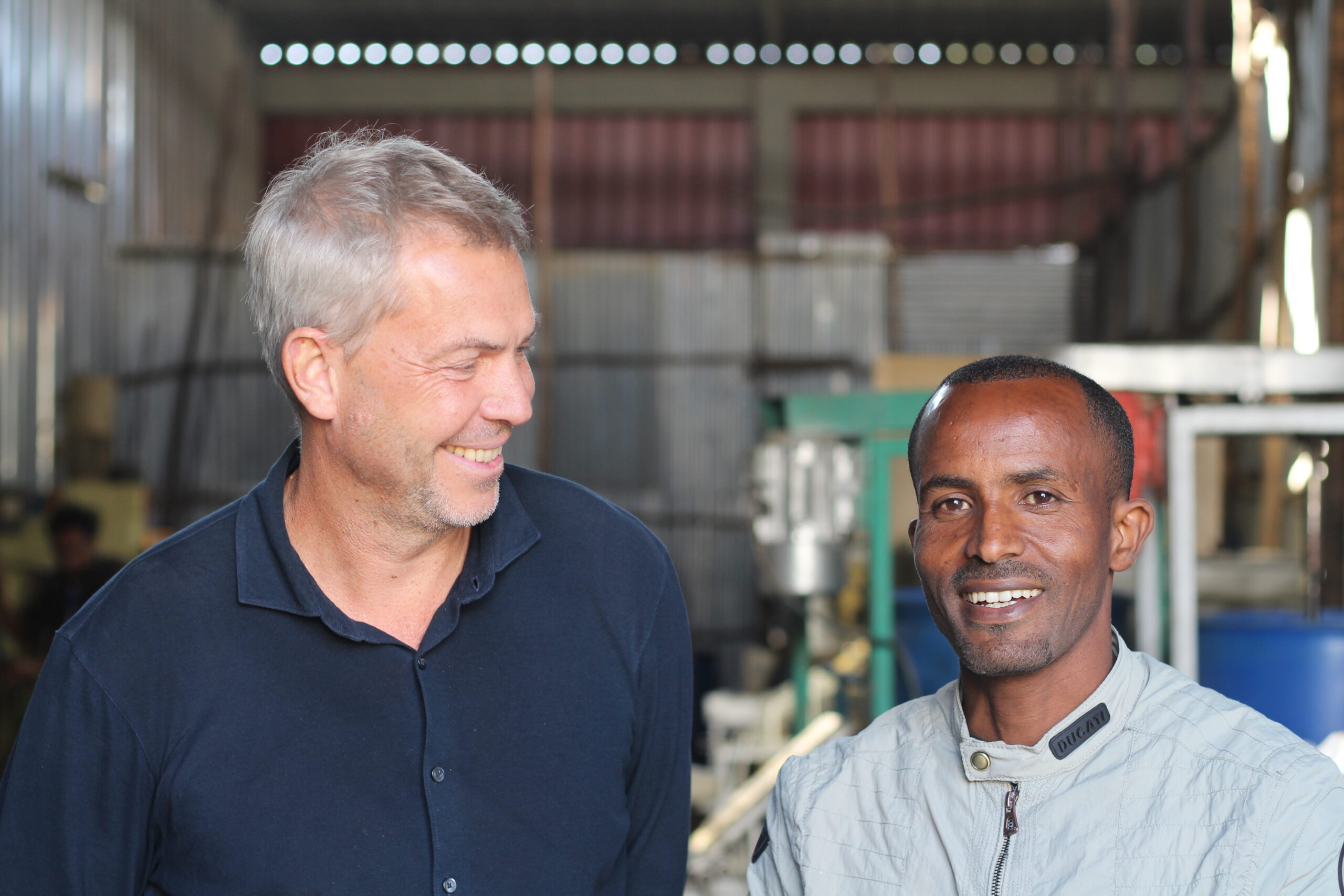Exploring the Rise of Female Founders in Africa
Quiet Revolution, In Africa Business Landscape
In the sprawling markets and along the bustling avenues of Africa’s metropolises, there’s a revolution quietly unfurling. It’s not solely heralded by the rise of skyscrapers or tech hubs that start catching global attention – it is personified by resilient women at the helm of innovation, dismantling stereotypes, and reshaping the continent’s commercial topography. Anyone looking around Africa’s start-up scene is realising: the future is female.
Matee, 32, an entrepreneur from Nairobi, is the founder of Gjenge Makers. The start-up presses paving stones from plastic waste and tackles two problems at the same time. Firstly, the increasingly expensive prices of construction materials in Kenya. And secondly, the environmental pollution that goes hand in hand with the improper disposal of plastic waste.
In her factory in Nairobi Matee stands amidst the fruits of her labor, a figure clad in the working blues of her trade, holding a brick composed of recycled plastics, her contribution to a greener world. She is not merely a businesswoman but a steward of the environment. Her journey, from ideation to the physical manifestation of her eco-friendly enterprise, encapsulates the broader story of African women’s ascendancy in the realm of business. She is part of a growing tapestry of female founders who are not only participating in the economy but also redefining its parameters through enterprises that intersect with social welfare and community upliftment.

“Female founders in Africa aren’t waiting for change; we are the change,” Nzambi Matee says. “We are crafting opportunities from the ground up, turning challenges into stepping stones. We do it for ourselves, for our communities, and for the continent’s future.” Resilience and the power of improvisation have always been part of the cultures and people of Africa. But this is particularly true of the continent’s women.
For centuries, they have been the custodians of community well-being. Yet, for far too long, their potential was curtailed by the confines of traditional roles and limited access to essential resources. These cultural shackles have long dictated their place within the family, at times dimming the prospects of broader societal engagement.
However, right now this old narrative is shifting.
More and more women are stepping out of the shadows and into the public eye. And nowhere is this more noticeable than in the business world. From the tech buzz of Lagos to the vibrant entrepreneurial spirit of Nairobi, women are at the forefront of a commercial renaissance. They’re not merely establishing businesses— they’re dismantling long-standing barriers and reconstructing entire industries. Fintech mavens are redefining the essence of digital transactions, while champions of agribusiness are empowering local farmers, igniting a movement of sustainable development and economic rejuvenation.

“In the past, our mothers started small businesses out of necessity. But we, the daughters, are building enterprises out of ambition and vision for a sustainable future,” Nzambi Matee says with confidence.
Statistics underscore the burgeoning presence of female entrepreneurs in Africa. According to OECD research, Sub-Saharan Africa boasts the highest rate of female founders globally, with nearly 26% of female adults engaged in entrepreneurial activity. In Europe, by contrast, the rate of entrepreneurial activity among women is just 5.7%, per figures from the European Investment Bank. A study by management consultancy Roland Berger shows that already today women entrepreneurs contribute between 250 and 300 billion US Dollars to African economic growth, equivalent to about 13 percent of the continent’s GDP. And there is often more behind all these figures than just start-ups that make money.
A case in point is Matee’s startup, which transforms plastic waste into durable building materials. Her business model encapsulates a crucial tenet of African female entrepreneurship: the confluence of profitability and social impact.
A United Nations report indicates that women typically reinvest a significant portion of their income – up to 90% – back into the education, health, and nutrition of their families and communities. This figure starkly contrasts with the 35% reinvestment rate by men and underscores the transformative impact that women’s businesses could have on African economies and societal structures.
Yet, the ascendancy of female founders is not without its hurdles. Access to funding remains a persistent barrier, with the African Development Bank reporting that the financing gap for women in Africa is estimated at $42 billion. When it comes to venture capital – which, of course is only part of the picture – women founders receive less than 7 percent of all such funding in Africa. This, coupled with societal and systemic challenges, means that female entrepreneurs often have to navigate a labyrinth of obstacles to see their visions come to fruition.
“I see the challenges as stepping stones,” Matee says. “Every ‘no’ has only strengthened my resolve to build, innovate, and pave the way for other women.”
The burgeoning ecosystem of support for women in business – spanning accelerators, investment funds, and mentorship programs – is facilitating a transformative landscape for women like Matee. Digital platforms and technology are further democratizing access to markets and finance, catalyzing a new era of inclusivity and diversity in entrepreneurship.
As this narrative unfolds, it is evident that the continent is on the brink of an entrepreneurial renaissance, led by women like Nzambi Matee. The future of business in Africa is indeed incandescent with the promise of female leadership, and it is entrepreneurs like Nzambi Matee who are illuminating the path forward.
“This is just the beginning,” Matee asserts with unwavering conviction. “We are not just opening doors; we’re building a whole new edifice where women reign as champions of change and architects of an inclusive and prosperous future.”




